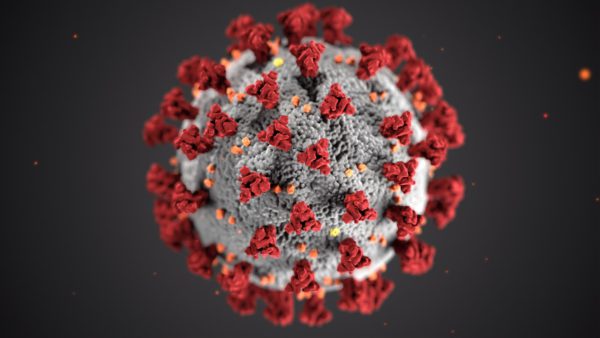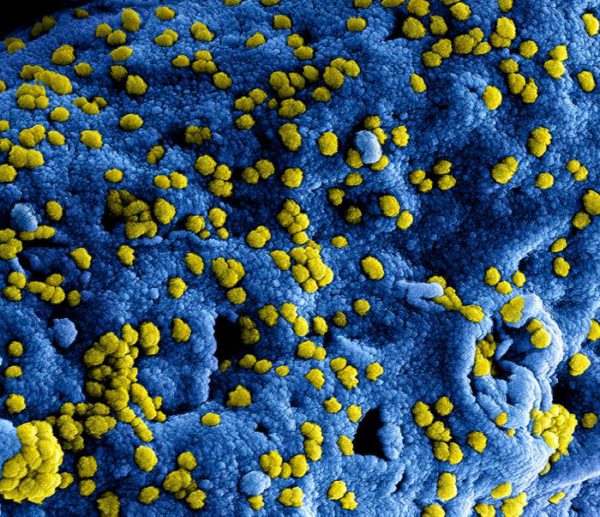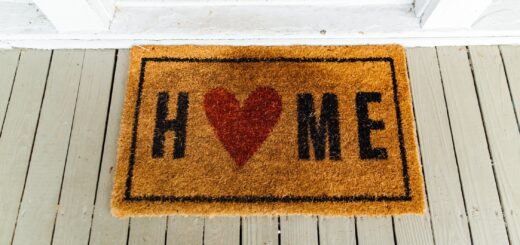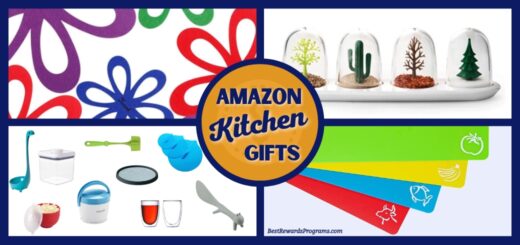How to Prepare for COVID-19 Coronavirus in Your Community
NOTE: This article was originally published in March 2020 and contains information that is now out of date (e.g. when the article was published there were no vaccines available – they have now been developed and approved for effective use against severe illness). Check with the CDC online for the most current information.
***
With the number of cases on the rise each day, news of the Coronavirus pandemic is everywhere. Drastic measures are being taken to #FlattenTheCurve in an effort to reduce the spread of the virus and to save lives. Although it may be too early to know the exact rates of contagion, it is clear that this is a serious threat to a significant number of people.
Quick Article Navigation:
What is the Coronavirus
The “coronavirus” in the news is a new virus that has been named “SARS-CoV-2”. The disease it causes has been named “coronavirus disease 2019” and is abbreviated “COVID-19” (it is also formerly known as “2019-nCoV“). This new strain of virus originated in China and quickly spread across the globe.
Symptoms of the lower respitory illness include fever, cough, and shortness of breath.
There is no vaccine and there is no cure. Early studies suggest that the COVID-19 virus is more contagious than the common flu and more serious for people over 60 years old and with other immune disorders or medical issues like hypertension.
How to Prevent the Spread of Coronavirus
There are a number of smart precautions that can help to lower the chances of spreading the coronavirus. These hygiene tips are good habits to help prevent the spread of many contagious diseases.
Ultimately, the best way to prevent illness is to avoid being exposed to this virus. These tips are designed to help prevent contact with and exposure to the virus.
Prevention Strategies for Everyone
These strategies can help everyone lower their chances of both getting the illness and from spreading it.
- Practice Social Distancing
- Stay at home and limit your trips to only go out for necessities like food and medication
- Keep at least 6 feet away from other people whenever possible
- Limit physical contact with others (no handshakes, high fives, hugs, etc.)
- Clean Your Hands Thoroughly
-
- Wash your hands for at least 20 seconds after being in a public place, blowing your nose, coughing, or sneezing
- Alternately (if washing isn’t available), use a hand sanitizer that contains at least 60% alcohol
- Don’t Touch Your Face
- Avoid touching your eyes, nose, and mouth with unwashed hands
- Sneeze / Cough Into a Tissue or Elbows
- Throw away tissues after sneezing or coughing into them
- Immediately wash your hands after coughing or sneezing
- Wear a facemask when needed
-
- If you are sick, you should wear a face mask when you are around other people
- If you are not sick, a face mask is required when caring for a sick person, but may also reduce risk of asymptomatic transmission so consider wearing one when in public
-
Extra Prevention Strategies for People at High Risk
Per the CDC, people at higher risk should take additional strategies to protect themselves from the coronavirus. Those at high risk include older adults and people with serious chronic medical conditions (like heart disease, diabetes, and lung disease).
- Stock up on essential supplies now
- Medications (consider mail order if you cannot go out)
- Groceries
- Pet supplies
- Keep space between yourself and others
- Avoid crowds
- Avoid contact with sick people
- Avoid touching surfaces in public spaces
- Avoid cruise travel and non-essential air travel
- Wash your hands often
- Use soap and water for at least 20 seconds when possible
- Use hand sanitizer when it is not possible to wash your hands
- Clean and disinfect frequently touched areas at home on a daily basis
- Light switches
- Remote controls
- Toilets
- Cell phones
- During a COVID-19 outbreak in your community, stay home as much as possible to further reduce your risk of being exposed
If you find that you need to self-quarantine at home, know that you can get just about anything you need delivered to you at home in most cities. Check out food delivery services like InstaCart and the restaurant delivery services GrubHub and DoorDash as examples .
How to Prepare for the Coronavirus
Even if you never have a single symptom of the Coronavirus, the disease is likely to already be impacting your everyday life.
With restrictions on travel, closures of schools and workplaces, and cancellations of large festivals like SXSW, the things we are able to enjoy are being directly impacted. When these things are combined with shortages of necessities like medicines and toilet paper, there is no denying that the Coronavirus pandemic is a major event.
There have been reports of stores selling out of staples like water and toilet paper. Some medications have been in limited supply due to factory shutdowns in affected areas. You may want to make sure you have essentials like these on hand to last for a few weeks in case of closures or quarantines. In addition to your normal staples, the items below can help you to fight off germs at home and out in public.
Supplies to Navigate the Coronavirus Pandemic
Ensure that your family is ready for anything with the following supplies. Note that it may be helpful to purchase these items before you need them as any additional travel restrictions could limit product availability.
Soap
Whether you prefer a bar or liquid soap, cleansing with soap and water for at least 20 seconds is the best way to remove germs from your hands. Note that soap does not need to be “antibacterial” in order to work.
Surface Cleaners
These products can help you disinfect and clean surfaces at home and on-the-go.
Disinfectants
A quick spray of these disinfectants can help to kill germs on surfaces around the house.
Hand Sanitizers
When there is no soap and water available to wash your hands, use a hand sanitizer with at least 60% alcohol to kill germs. Alternatively (as packaged hand sanitizer is currently in short supply), you can make your own hand sanitizer at home with an online tutorial).
UV Sanitizers
These UV-based sanitizers can help clean unusual surfaces like cell phones, keyboards, and other items that should not get wet with traditional cleaning products.
Masks
The current recommendations are that these are only needed when you are either sick or caring for someone who is sick. If that is you, then choose a high-quality N-95 mask to keep the virus from spreading. Otherwise, the health care workers hope that you won’t purchase these if you don’t need them (this will help ensure they are available in hospitals where they are needed most).
If you can sew, consider sewing your own protective face mask at home for your family, and if you have the time, consider making enough to donate to a health care facility in need. For those who do not sew, here is a quick tutorial to make a quick no-sew mask with fabric and rubber bands.
Gloves
Use disposable gloves that can be thrown out when cleaning. These can also be used to limit contact when caring for a sick person.
Tissues
Make sure to cough or sneeze into a tissue whenever possible. Throw out the tissue after you sneeze / cough into it.
Hydrate
Staying properly hydrated with balanced electrolyte levels is important for health at all times.
Supplies for Emergency Outages
In the event that services are suspended for brief or extended periods, it can help to be prepared with emergency supplies. These items can be helpful during emergencies of many natures including weather, seasonal, and other emergencies like COVID-19.
Power Sources
Portable Battery Chargers
These portable battery chargers can be charged during times when the power is on, and used as a backup power source when needed. The small sizes are great for travel, but the charge may only power a smart phone for a few hours.
Solar Chargers
With an ample amount of sun, you can opt for a solar-powered way to charge your devices. There are solar powered options from large to small — choose a portable folding solar panel charger for a backup smart phone charger, or go completely off the grid with a solar powered roof at home and a solar powered car in the garage.
Fire-Powered Generators
For a versatile tool that provides heat for cooking and generates electricity for devices, consider a small biomass stove.
Gas-Powered Generators
When you need to make sure that you have uniterrupted power in your home, you’ll want to have an adequately sized gas-powered generator. Purchase one of these well in advance of events like major storms (hurricanes, blizzards, etc.) because they can be impossible to purchase when you need them the most.
Potable Water
Bottled Water
If you have storage space and plan in advance, you can store emergency bottled water for you family. However, most bottles are not meant to be stored in high temperatures (like garages in Summer) or over long periods of time (over a year).
Water Filters
If you aren’t able to distill or boil water that is not known to be clean, then at least use a filter to remove most impurities that could make you sick.
Water Treatment Tablets
These small tablets are easy to carry in an emergency “go-bag” to ensure that you can have drinkable water from any water source.
Water Distiller
Purifying water using distillation is a way to remove impurities. Tabletop electric distillers make it easy to set a batch for easy dispensing while non-electric versions allow for more versatile distilling options.
*** PLEASE NOTE ***
Many of these items are selling out extremely fast. Make your purchases as soon as possible.
Online COVID-19 Coronavirus Resources
For ongoing updates, follow these internationally recognized health resources:
CDC
Based in Atlanta, GA, the Centers for Disease Control and Prevention is at the forefront of the US response to the outbreak. Stay current with updates on their website at cdc.gov/coronavirus/2019-ncov or on CDC Social Media at:
- Facebook: facebook.com/CDC
- Instagram: instagram.com/CDCgov
- Twitter: twitter.com/CDCgov
- YouTube: youtube.com/user/CDCstreamingHealth
WHO
The World Health Organization is committed to slowing the spread of the virus worldwide. Follow online for the latest international updates at either their website at who.int/health-topics/coronavirus or on WHO Social Media at:
- Facebook: facebook.com/WHO
- Instagram: instagram.com/who/
- Twitter: twitter.com/WHO
- YouTube: youtube.com/user/who
New England Journal of Medicine
A collection of articles and other resources on the Coronavirus (Covid-19) outbreak, including clinical reports, management guidelines, and commentary. Stay informed on their website at nejm.org/coronavirusor on NEJM Social Media at:
- Facebook: facebook.com/TheNewEnglandJournalofMedicine
- Instagram: instagram.com/nejm
- Twitter: twitter.com/nejm
- YouTube: youtube.com/user/NEJMvideo
***
Please understand that small, individual actions do add up to make a real difference. We are all in this together. Stay safe, healthy, and let’s all get through this together.
***
Originally published March 11, 2020 and updated on March 23, 2020.



















Great article, this is exactly what people needs to see at this point in time, the corona virus pandemic has caused alots of harm and death globally, many are dieing and the economy of many countries are also crumbling, even the fear of corona virus is the worst, and many wrong information is being passed, it is really nice for you to post this because honestly most people do not really know how to prevent this virus and most people do not really understand social distancing, it’s true they do not go out but in my country some people see this period as visiting period they visit neighbours, relatives and colleague, Thanks a lot for sharing how to prevent it and what to use for the prevention.
Hi Alexy, We can all do our part by staying at home to help “flatten the curve”.
My community hasn’t taken any necessary precautions when it comes to the prevention of this virus. I haven’t left my house in over a month and people are still going out and ignoring the necessary precautions that we all should take and the things and activities we should avoid. If a person is coughing for the last 3 weeks with no signs of fever nor respiratory problems, do you think they still should get tested?
Hi Stephanie, Since people can transmit the virus without having any symptoms, it seems that we need to test most people (especially those with any symptoms).
With so much misinformation floating about on the Internet related to COVID-19, I am appreciative of your coverage of this “moving target.” As a reporter I have read hundreds of articles, medical reports and the like and I must say that yours is the most complete with some great suggestions for supplies, what the disease is, how it spreads and how to prevent the further spread of the disease. I live in Minnesota and in spite of the efforts to shelter at home, we still are having new daily cases and deaths associated with COVID-19. It breaks my heart.
Again, thank you for the very beneficial article which ties together the many aspects of this disease and lays them out in an easy to understand way.
Karin
Hi Karin, Thanks so much. It’s feels very important to take the shelter at home instructions seriously in order to slow the spread of the disease.
Hi, Thank you so very much for your article on How to Prepare for COVID-19 Coronavirus in Your Community. There are so many things I didn’t know before now, that your Article has opened my eyes to. Because of this invisible Pandemic called Coronavirus, we now have to wash our hands so many time a day, sneeze in a certain way and I even found out that many have trained themselves not to even cough or sneeze; but I have learned here how to make a DIY Mask and this I am also going to teach others. Thanks
You are correct and even though many of us had heard this advice to help reduce the spread of cold and flu viruses in the past, it’s good that so many people are now following this helpful advice during the COVID-19 pandemic.
A brilliantly written article on the COVid-19 virus. These are indeed challenging times and I love how you broke down what the virus is and the preventative measures one can take to ensure we survive this pandemic. Thank you for the recommendations provided relative to products we can use to restrict the contact with the virus.
Hi Jaye, I do hope that the information and recommendations are helpful. Thanks for keeping yourself informed as we all work together to help #FlattenTheCurve.
Thank you for not only the great advice but also the great recommendations and product links. Trying to find some of these items while shopping has been stressful, so seeing it all here it one place is a good spot to maybe just order all my supplies at once from now on. It looks like most of the online stores still have these items in stock, so that takes away a lot of the stress and the need to ‘panic-buy’
It is nice to see people actively reaching out and assisting the online community throughout all of this corona induced chaos, we need more good hearts out there 🙂 Thanks again!
Hi GabrielGrey, it has definitely been challenging to find some items in my area (like paper products), but fortunately we’ve been lucky to find everything we need.
It’s definitely great to see people helping each other where they can in these very unusual times.